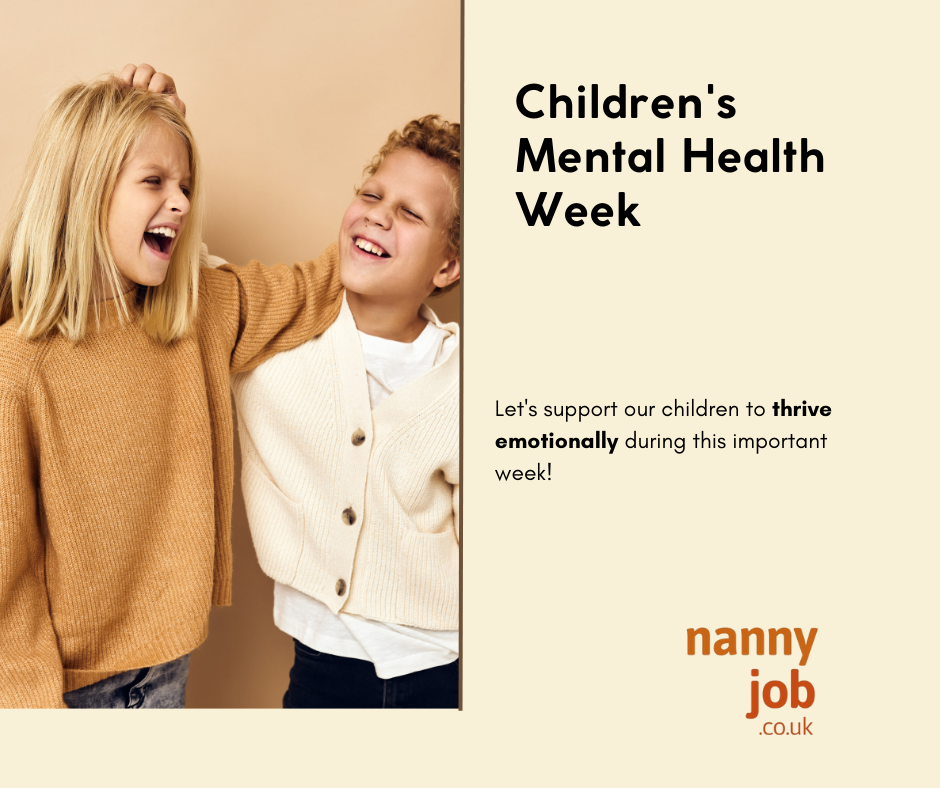Introduction
Children’s mental health is just as important as their physical well-being. Children’s Mental Health Week (3rd – 9th February 2025) is a crucial time to focus on helping kids develop emotional resilience, express their feelings, and seek support when needed.
As parents, nannies, and caregivers, we play a key role in fostering a positive mental health environment for children. This blog explores how we can support children’s emotional well-being and help them build the skills they need to navigate life’s challenges.
Why Mental Health Matters in Childhood
Good mental health enables children to:
✔️ Build strong relationships and communicate effectively.
✔️ Cope with setbacks and manage stress.
✔️ Develop confidence and a sense of self-worth.
When children struggle with their mental health, they may show signs of anxiety, withdrawal, anger, or difficulty concentrating. Recognizing these signs early and providing a supportive environment can make a significant difference.
How to Support Children’s Mental Well-being
1. Encourage Open Conversations
- Create a safe space where children feel comfortable talking about their emotions.
- Use age-appropriate language to discuss feelings, like happy, sad, worried, or frustrated.
2. Teach Emotional Regulation
- Help children understand that all feelings are valid but need to be managed in healthy ways.
- Breathing exercises, mindfulness, and storytelling can help kids express and process emotions.
3. Build Resilience Through Problem-Solving
- Instead of fixing every problem for them, guide children through solutions.
- Praise effort rather than just outcomes to encourage a growth mindset.
4. Encourage Play and Creativity
- Play is a powerful way for children to process emotions.
- Arts, crafts, music, and role-playing can help kids express themselves.
5. Be a Role Model
- Show children how you manage stress and emotions in a healthy way.
- Talk about your own feelings in an age-appropriate way, showing that it’s okay to express emotions.
6. Promote Healthy Routines
- Regular sleep, nutritious meals, and physical activity all contribute to mental well-being.
- A structured routine provides a sense of security and stability for children.
How Nannies and Caregivers Can Help
Nannies and caregivers can have a big impact on a child’s mental health by:
✔️ Creating a calm, structured, and supportive environment.
✔️ Recognizing signs of stress or anxiety and offering comfort.
✔️ Encouraging open communication and modeling emotional intelligence.
✔️ Providing fun, creative, and engaging activities to support emotional development.
By working together, families and caregivers can give children the emotional tools they need to navigate the world confidently and happily.

